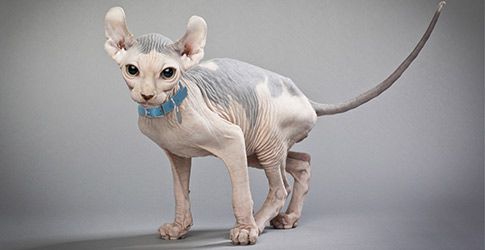Should you brush your kitty? That’s a very common question with cat pet parents, especially those who are new to parenting a little bundle of fur. You might think that your cat’s grooming is enough to keep she and her fur healthy, but brushing can be a great way to help improve your cat’s overall health.
Connect with a verified veterinarian in minutes. Licensed vets are available 24/7 to answer your questions. No need to worry about your furry family member.
Why Do Cats Need to Be Groomed?
Cats are very particular about grooming themselves and staying clean. Have you ever watched your kitty sitting in a sunny spot and giving herself a bath? She may have a look of contentment and satisfaction as she grooms. You may have also noticed that she grooms several times a day!
That’s because grooming is one of the ways your precious ball of fur takes care of herself
Still you may question “Should you brush cats?” The resounding answer is yes! Here’s why:
1). Reduces shedding: brushing reduces shedding by removing excess hair. Your kitty won’t accidentally swallow her fur when grooming herself, and you won’t find as much kitty hair all over your furniture and clothes.
2). Keeps kitty clean: brushing also removes dirt and debris from her fur. She’s excellent at cleaning herself but giving her a little help when she needs it will help her stay cleaner.
3). Prevent mats and tangles: you’ll help keep your cat’s fur free of tangles and mats. Mats and tangles can build up on your cat’s body, causing the fur and skin to pull. Think of how it feels to have a snarl in your own hair and then think of your poor cat full of mats and snarls. That doesn’t feel good, so regular brushing can help her stay clean and snarl-free.
4). Reduce hairball frequency: regular brushing also helps to reduce the number and frequency of hairballs. Hairballs are real problem for all cats, especially those with longer fur.
5). Bonding time: not only will brushing help your kitty’s fur, but you’ll also have the perfect time to bond. Many cats enjoy spending this time with their pet parents.
6). Spread natural oils: brushing also helps spread natural, protective oils over your cats fur and skin. Not only does this natural oil keep your cat’s fur shiny, but it also works to keep kitty’s skin protected and free of thing that could cause irritation.
Do Short Haired Cats Need Brushing
Yes, short haired cats need to be brushed as much as any other cat. One nice thing is that short haired cats are easier and faster to brush than cats with longer fur. Did you know there’s even a proper method to brushing a cat with short hair? Let’s take a look!
What You’ll Need:
- Soft bristled brush: should be gentle to the touch
- Fine-toothed comb: can help to gently work out mats or tangles
Method:
1). Always follow the grain of your cat’s fur—that means brush her hair in the direction the fur naturally lies. This will keep her more comfortable and accepting of the grooming process, and she’ll look better, too. Think of how it feels if your hair’s brushed the wrong way. This is how your kitty will feel if you brush her the wrong way. Doing this could result in you ending up with a few bites and scratches!
2). Take your time: go slowly and take your time with the brushing process. Stay relaxed and your kitty might also stay relaxed and enjoy the experience.

Review symptoms, medications & behavior to keep your pets healthy with a Vet Online in just minutes.
Ask a Vet Live NowHow to Brush a Cat that Doesn’t Want to be Brushed?
You may be a “lucky” pet parent who has a fur baby that hates being brushed. How do you handle that problem? It’s usually best to start out slow and start in an area that’s least offensive. Does your cat like her head scratched? Does she enjoy being scratched around her ears? Then you might start gently brushing her in those places. If she becomes upset, then stop for a few minutes. Then try again…very gently and slowly.
It may take some patience on your part to keep you both at ease with the whole process. It could take some time for your cat to become fully comfortable with the idea of being brushed. Don’t worry and don’t be discouraged. Just try working in small areas a little at a time. When kitty is allowing you to brush her, encourage her good behavior with kind words, petting and some of her favorite treats. This is positive reinforcement, which can work wonders on most kitties.
Should I Cut my Cat’s Feet Hair
What about cutting the fur on your cat’s feet and paws? Does it need to be cut or trimmed? Before we answer these questions, it’s important to understand the reason your cat has fur on her feet and paws. The fur in these areas provides protection for your cat’s skin. It protects her against variations in temperature, such as extreme heat or cold. The fur on her feet also protects against such things as cuts, insect bites, and substances that could cause skin irritation.
Furry feet can become a problem for indoor cats. It can cause slipping and sliding on flooring and other surfaces. She could jump down from a shelf onto the floor and go sliding. She could slide into a piece of furniture, a door, etc. and become injured. Other issues can develop with kitty litter becoming entangled in fur on a cat’s feet.
One sign your cat may find her furry feet a problem is that she will lick them constantly. If you notice she’s licking her feet quite a bit, then it’s time to take her to the vet.
The vet may trim the fur on her feet and will check her pads and claws for other issues including sores, injuries, etc.
How Often Should I Take my Cat to the Groomer?
If you and your precious feline companion just can’t deal with brushing and grooming, or if your cat has problem areas, you might consider taking her to a professional cat groomer. This might also be an option of your cat has long, problematic fur. And groomers can also take care of trimming your fur baby’s nails or even give her a bath, if necessary.
Groomers can provide specialized services, too, including ear problems:
- Bald spots
- Discharge
- Redness, Irritation
- Swelling
- Debris
- Odor
- Blood
- Caked ear wax
These problems can be a sign of ear mites or other “bugs” your cat could have encountered. They can also be signs of infection. However, the groomer will be able to treat some issues, but should advise taking your precious feline to the vet if it’s a problem they can’t treat. Most people don’t know this, but there are cat groomers who even provide dental services. You may be wondering why anyone in their right mind would work on a cat’s teeth! Think of all the gnashing and biting! But seriously, sometimes cats need dental treatments, too. Groomers may take care of plaque buildup, teeth brushing, etc.
How often does your kitty need to visit the groomer? Most cat groomers recommend brining kitty in every 4-6 weeks, or sooner if she has a problem with mats, etc.
Common Brushing Mistakes
When it comes to brushing your cat, it’s quite possible to get it wrong and make mistakes. Let’s take a look at some of the most common mistakes pet parents make when brushing their cats:
1). Using the wrong brush: using the right brush can make all the difference in the world when it comes to brushing your cat. There are many styles and types of brushes available, making it a challenge to find the right one.
2). Brushing against the “grain”: this is one of the worst things you can do when brushing your cat. Never brush against the grain of your cat’s fur. Brushing against the grain means to brush against the direction your cat’s hair grows. If you continue with this method, you’ll more than likely end up with some nasty scratches and bites, along with a cat that hates to be brushed.
3). Cutting mats and tangles: removing mats and tangles from your cat’s fur can be difficult, to say the least. Never just rip these off your cat. You’ll cause her great pain and could also cause a wound where you’ve removed the tangle. Don’t try to cut them off with scissors, either, as it’s almost impossible to cut the mats out all the way to the skin.
The best way to take care of this issue is to take your cat to the vet or groomer, who will likely use a pair of clippers to remove the mat(s). Clippers will shave all the way down to the skin, which will give your cat a temporary bald spot (till her hair grows back), but great relief from the hair pulling of mats and tangles.
The Best Brushes for Cats
We’ve done a little research to find out which brushes are best for cats—here’s what we found:
1). Slicker brushes: tend to be curved with thin teeth. These are great for cats with medium or long fur and they’re great for removing dirt, dander and loose hair. They’re also helpful to keep mats and tangles from developing.
Check out the JW Pet Company GripSoft Cat Slicker Brush: this brush is perfect for every day grooming (if your cat will allow this!), and features a non-slip handle with an ergonomic design. This brush works to keep your cat’s fur tangle-free and shiny, while also reducing shedding and hairballs. It works on most all cat breeds.
2). Mitt brush: these brushes are shaped like mitts and fit over your hands, but they feature a rubber or vinyl portion that has “teeth” to brush your cat’s fur. These are great for cats who run at the sight of a brush. Your cat may enjoy this “brush” better than a regular brush—she may feel she’s being petted rather than brushed.
Here’s a set of hand mitts that might work for your kitty, the Pet Grooming Glove: this set of mitts is great for massaging your fur baby as you remove excess fur. These mitts work well on most types of cat hair, and they’re easy to clean! We hope you and your kitty will find just the right brush or mitts, so you can help kitty take care of her fur and you can both enjoy this time spent together.
Connect with a verified veterinarian in minutes. Licensed vets are available 24/7 to answer your questions. No need to worry about your furry family member.

Tom
Tom has always loved to write since he was little - he wanted to be either a writer or a veterinary doctor, but he ended up being a professional writer while most of his works are based on animals. He was born in San Francisco but later moved to Texas to continue his job as a writer. He graduated from the University of San Francisco where he studied biotechnology. He is happily married and a soon to be father!
Review symptoms, medications & behavior to keep your pets healthy with a Vet Online in just minutes.
Ask a Vet Live Now



